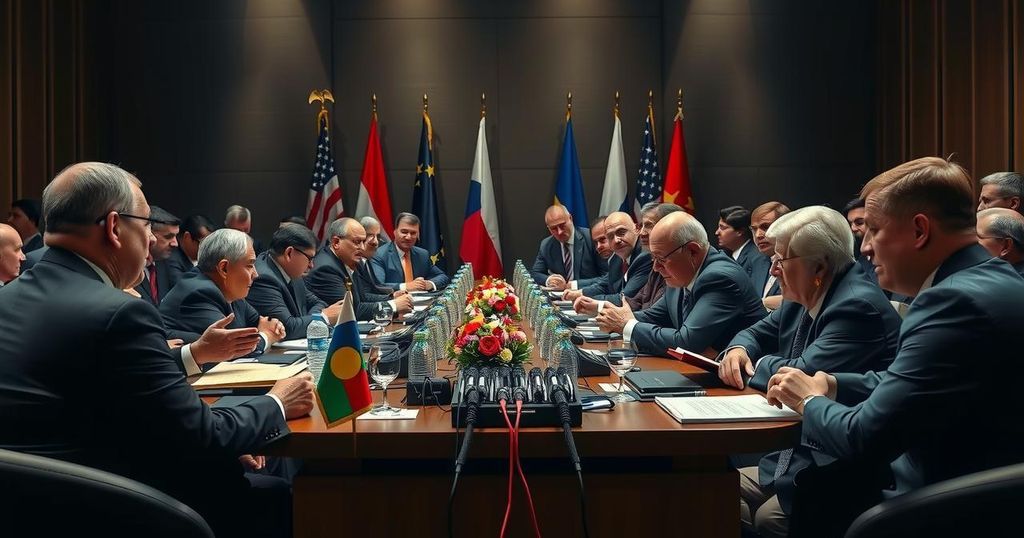U.S. President Joe Biden and Chinese President Xi Jinping are set to meet on November 16 during the APEC summit in Lima, Peru. The discussion will focus on military communication, the fentanyl crisis, artificial intelligence, and trade practices, amidst concerns over Russia’s support from China and increased military activity in Taiwan. This meeting is notable as it precedes a change in U.S. administration, which may adopt a more confrontational stance towards China.
United States President Joe Biden is scheduled to meet with Chinese President Xi Jinping on November 16 during the 2024 Asia Pacific Economic Cooperation (APEC) summit in Lima, Peru, as announced by the White House on Wednesday. This encounter will mark their first in-person discussion since their meeting at last year’s APEC summit in California and is pivotal as it occurs before the incoming administration led by Donald Trump, who has appointed notable critics of China to key foreign policy positions. The discussions are anticipated to focus on enhancing cooperation in several critical areas, which include the restoration of military communications, tackling the global fentanyl crisis, and addressing the challenges posed by artificial intelligence. Additionally, President Biden intends to voice his serious concerns regarding China’s support for Russia amidst the ongoing conflict in Ukraine, the involvement of North Korean troops aiding Russian efforts, and the increased military activities by China around Taiwan and the South China Sea. Furthermore, Biden is expected to express his long-standing apprehensions concerning China’s trade practices and cyber-security threats posed to American infrastructure. This forthcoming meeting is poised to be significant, not only for the diplomatic relations between the two nations but also for shaping the strategic dynamics that the next administration will inherit. With a forecast of a more confrontational stance towards China under Trump’s leadership, the discussions will necessitate a careful consideration of areas characterized by substantial policy discrepancies, including security issues related to Russia, Taiwan, and cyber operations. The official who briefed reporters noted, “Russia, cross-strait issues, the South China Sea and cyber are areas the next administration is going to need to think about carefully.” President Xi is likely weighing the implications of Trump’s economic policies, especially regarding trade, as the latter has indicated intentions to enforce tariffs on Chinese imports. This evolving landscape underscores the necessity for both leaders to engage in constructive dialogue aimed at managing their complex and challenging bilateral relationship. As the world observes this significant political engagement, the outcomes of their meeting could impact not only U.S.-China relations but also broader geopolitical stability within the Asia-Pacific region.
The relationship between the United States and China has been characterized by both collaboration and contention, particularly in areas such as trade, security, and geopolitical influence. The upcoming meeting between President Biden and President Xi is crucial as it occurs against a backdrop of intensifying tensions, including China’s stance on the Russian invasion of Ukraine and its assertive military posture in the South China Sea. The APEC summit, a platform for promoting economic cooperation in the Asia-Pacific region, serves as an opportune setting for both leaders to address these pressing issues and seek common ground amid an increasingly complex international landscape.
In summary, the meeting between President Biden and President Xi at the APEC summit in Lima marks a critical moment in U.S.-China relations, particularly in light of the incoming administration’s potential shift towards a more confrontational approach. The discussions will aim to address vital areas of cooperation while also confronting significant areas of dispute. The outcomes of this engagement hold the potential to shape diplomatic interactions and policy directions that affect not only the two nations but also the broader geopolitical environment.
Original Source: www.voanews.com






